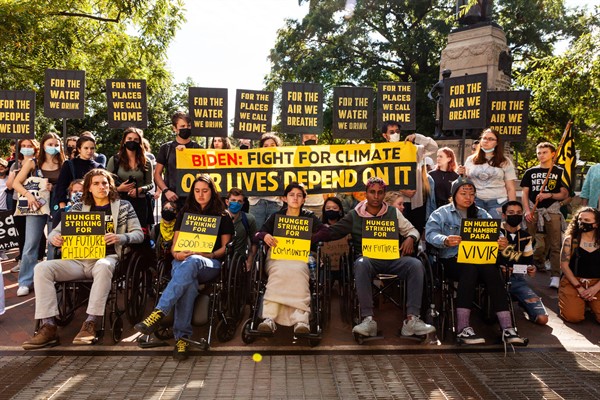Since Oct. 20, five young climate activists have been on a hunger strike in Lafayette Square in Washington. Their protest started the day after news emerged that U.S. President Joe Biden planned to downsize his $3.5 trillion domestic spending bill, including by cutting a $150 billion clean electricity program. The activists say that they are “sick and tired of broken promises” and will continue to starve themselves until their leaders deliver “bold and transformative climate action.”
A few days into the protest, the young activists resorted to sitting in wheelchairs, and one of them, 26-year-old Kidus Girma, was hospitalized overnight for nausea, dizziness and blurred vision. It is astonishing that less than 250 yards from the White House—a symbol of American democracy—these activists feel so powerless that they have resorted to putting their health on the line in order to pressure their leaders to deliver on climate policy.
How did we get to the point where young people feel compelled to take such risks?

